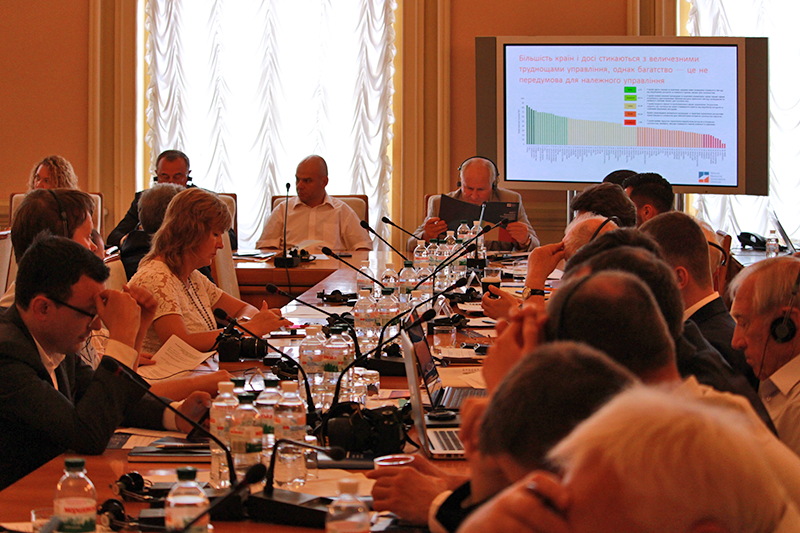
Ukraine Recognizes Hard Resource Governance Work Ahead
The Ukrainian extractives industry faces many challenges and opportunities. Stakeholders are interested in improving the transparency of sector legislation and ensuring it doesn’t hamper production and bolsters the private sector. Stakeholders also want to make sure the extractives industry complies with environmental regulations.
In mid-July, Ukraine’s parliament, the Dixi Group (a Ukrainian nongovernmental organization), and the Natural Resource Governance Institute sponsored a discussion on extractives management and the release of a comprehensive new Resource Governance Index at the parliament in Kyiv, with an eye toward how the tool might help decision-makers in the extractive sector.

To address the transparency issues in Ukraine's extractives sector, Dixi Group developed a policy note, Resource Governance Index: Homework for Ukraine, with NRGI support. It describes key natural recourse governance gaps and current legislative action aimed at improving Ukraine's resource management system.
The discussion in Kyiv was part of a public parliamentary hearing that attracted more than 80 participants and was followed up by a training for the country’s Extractive Industries Transparency Initiative multi-stakeholder group. Members of parliament, representatives of the Ministry of Energy and Coal, the Ministry of Ecology and Natural Resources, extractive companies, international organizations, agencies and specialized nongovernmental organizations actively engaged.
Ukraine Fuel and Energy Committee Deputy Olga Bielkova pointed out the disparities in Ukraine’s resource governance rankings. Much of the group’s discussion at the training focused on full-text contract disclosure and technical difficulties that stand in the way of such disclosure. The high technical bar to understanding complex contract terms also opens the door to corruption, some participants said.
NRGI governance officer Rob Pitman pointed to upcoming proposed legal reforms as an opportunity to reinforce contract disclosure, disaggregate disclosures at the project level, focus on mainstreamed ongoing reporting and remove beneficial ownership loopholes.
Nasima Nazrieva is a consultant with the Natural Resource Governance Institute (NRGI).
Authors

Nasima Nazrieva
Consultant